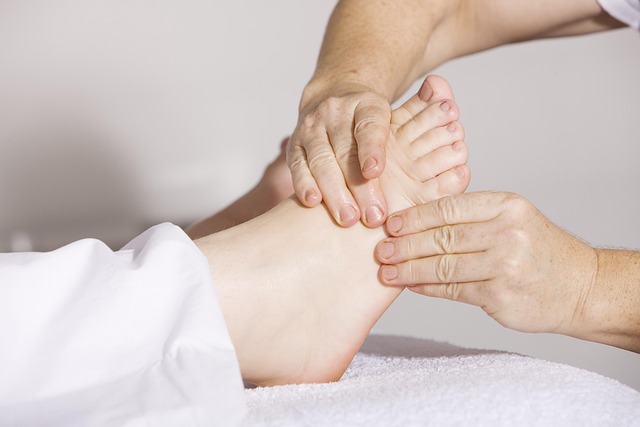Recognizing adolescent anxiety signs is crucial for timely professional help, as untreated anxiety can escalate, impacting academic performance and well-being. Youth anxiety treatment offers tailored CBT, exposure therapy, and mindfulness strategies to address root causes and build resilience. Tailored approaches like family therapy support recovery by creating a supportive home environment. Open communication and professional guidance from licensed therapists are essential for effective youth anxiety treatment.
Adolescent anxiety is a growing concern, yet many parents hesitate to seek professional help. Recognizing the signs is crucial for timely intervention. This article guides you through understanding youth anxiety, exploring treatment options, and supporting your teen’s recovery. Learn when self-help strategies are insufficient and discover the various types of professional youth anxiety treatment available. By arming yourself with knowledge, you’ll be better equipped to navigate this challenging phase.
Recognizing Signs of Adolescent Anxiety
Recognizing the signs of adolescent anxiety is a crucial step in understanding when to seek professional help. During their formative years, teens often experience a range of emotions, but persistent and intense feelings of worry, fear, or unease that interfere with daily life can be indicative of anxiety disorders. These disorders, such as generalized anxiety disorder (GAD), panic attacks, social anxiety, or obsessive-compulsive disorder (OCD), manifest in various ways. Youth may exhibit physical symptoms like excessive sweating, rapid heartbeat, insomnia, or fatigue. They might also show behavioral changes, including avoidance of certain situations, social withdrawal, difficulty concentrating, and irritability.
Observing these signs isn’t always straightforward, as anxiety can be subtle and often masked by other issues like depression or anger. Parents, caregivers, or close friends may notice a general restlessness, a sudden drop in grades, or excessive concern over minor events. If left unaddressed, adolescent anxiety can escalate, affecting academic performance, social interactions, and overall well-being. Early intervention through youth anxiety treatment is key to managing these disorders effectively and ensuring teens develop healthy coping mechanisms for the future.
When Self-Help Strategies Fall Short
For many adolescents, managing anxiety through self-help strategies like mindfulness exercises, journaling, or talking to a trusted friend can be beneficial. However, when anxiety symptoms persist, intensify, or significantly impact daily functioning, it’s clear that self-help efforts alone may not be enough. This is especially true if the young person experiences difficulty concentrating at school, avoids social situations, or exhibits physical symptoms like excessive sweating or panic attacks.
In such cases, professional help for adolescent anxiety becomes essential. A mental health specialist can provide tailored youth anxiety treatment plans that combine evidence-based therapies, such as cognitive behavioral therapy (CBT), exposure therapy, and mindfulness techniques, to address the root causes of anxiety. These specialized interventions offer a more comprehensive approach, helping adolescents develop coping strategies and gain a deeper understanding of their anxiety while fostering resilience and improved overall well-being.
Types of Professional Youth Anxiety Treatment
Anxiety disorders in adolescents can vary widely, from generalized anxiety to panic attacks and social phobias. Therefore, youth anxiety treatment approaches should be tailored accordingly. Cognitive Behavioral Therapy (CBT) is a common and effective method that helps young people identify and change negative thought patterns and behaviors contributing to their anxiety. Exposure therapy, a component of CBT, gradually exposes individuals to feared situations or objects, enabling them to manage their anxiety responses over time.
Another evidence-based treatment option is Mindfulness-Based Therapies, which teach adolescents present-moment awareness and non-judgmental acceptance of thoughts and feelings. This can be particularly beneficial in managing overwhelming anxiety symptoms. Additionally, family therapy can address interpersonal issues within the home environment that may exacerbate anxiety, fostering a supportive system crucial for recovery.
Supporting Your Teen's Recovery Journey
Supporting your teen’s recovery journey from anxiety is a vital step in ensuring they receive the best care and guidance. This process begins with open communication, creating a safe space for them to express their feelings without judgment. Encourage your teen to share their experiences and fears, helping them understand that their emotions are valid and manageable.
Additionally, seek professional guidance from licensed therapists or counselors specializing in youth anxiety treatment. These experts can provide evidence-based strategies and therapies tailored to your teen’s unique needs. Through counseling sessions, your adolescent can learn coping mechanisms, challenge negative thought patterns, and develop resilience, empowering them to manage their anxiety effectively over time.
If self-help strategies and supportive measures don’t alleviate adolescent anxiety, it’s crucial to consider professional youth anxiety treatment. With proper guidance from mental health experts, teens can learn coping mechanisms, gain insights into their anxiety triggers, and develop long-lasting resilience. Remember, early intervention through youth anxiety treatment is key to fostering a healthier, more balanced future for your teen.
